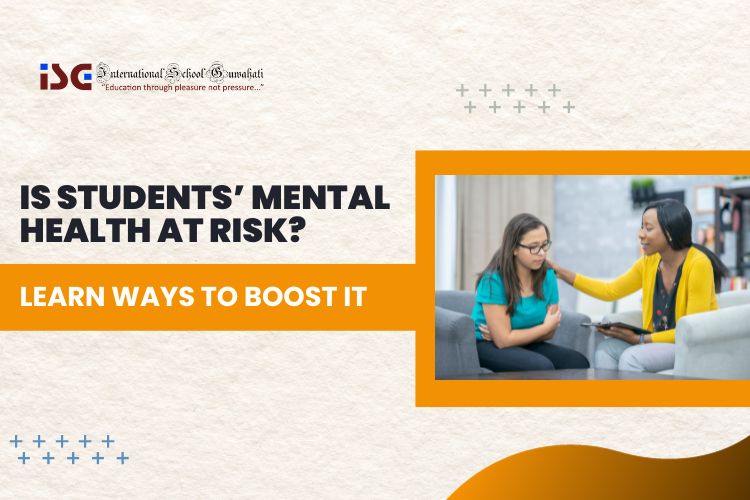![]()
Common sense and scientific research indicate that dopamine, often termed the ‘happy hormone,’ releases during activities like practicing gratitude or basking in sunlight. Researchers have linked low dopamine levels to various students’ mental health disorders, including major depressive disorders; therefore, scientists are continuously investigating the role of dopamine in these conditions. However, it remains uncertain whether low dopamine itself triggers these issues or if other factors contribute to dopamine dysregulation in different brain regions. Additionally, other neurotransmitters might also play a role in the development of these conditions.
Teenagers and young individuals, undergoing substantial brain changes during adolescence, are particularly vulnerable to fluctuations in dopamine levels. These changes may impact their mood, motivation, and overall mental well-being. Therefore, understanding how dopamine functions in the context of mental health is vital to addressing the challenges faced by this demographic and promoting their mental well-being.
Teenagers and their Mental Health and Well-Being

Teenagers experience intense emotions and go through various challenges like academic pressures, social dynamics, and identity exploration. Dopamine, among other neurotransmitters, influences how they respond to these stressors. Low levels of dopamine have been associated with mental health conditions such as depression and anxiety, which are prevalent among young individuals.
Moreover, excessive screen time, social media usage, or addictive behaviors like substance abuse can impact dopamine levels in the brain, potentially affecting mental health. Balancing dopamine levels through healthy habits like regular exercise, adequate sleep, positive social connections, and engaging activities can contribute to better mental health and well being outcomes for teenagers and young adults.
Tips to Enhance and Maintain Students’ Mental Health

- Valuing Oneself: Avoid comparisons and treat oneself with kindness and respect.
- Body Care: Maintain a well-balanced diet, exercise regularly, drink plenty of water, get enough sleep, and allocate time for enjoyable activities.
- Investing in Personal Growth: Dedicate time daily for self-development through activities like reading, writing, or learning new skills (e.g., swimming, dancing, or playing musical instruments).
- Stress Management: Battle the stress caused by academic, peer, or exam pressure through activities like walks, yoga, and relaxing entertainment.
- Mental Peace: Focus on mental health by starting the day with positive affirmations, engaging in meditation, and fostering positive self-talk.
- Realistic Goal-Setting: Set achievable goals to experience a sense of accomplishment.
- Celebrating Achievements: Reward oneself for achieving goals to sustain motivation and hard work.
- Seeking Help: Reach out to parents, teachers, or school counselors when feeling overwhelmed.
- Challenging Distorted Thinking: Encourage tweens to recognize and challenge extreme or distorted thoughts through cognitive-behavioral techniques.
- Promoting Compassion: Foster empathy and understanding by exploring alternative reasons for others’ behavior and promoting compassionate responses.
Final Thoughts
Schools significantly shape children’s development, as they spend more time in this educational setting than in any other formal institution. Within schools, children’s growth, including peer relationships, social interactions, academic achievement, cognitive advancement, emotional regulation, behavioral norms, physical health, and moral development, intertwine and mutually influence mental health issues in schools.
Therefore, understanding and taking care of yourself are super important for students and teens. its important to remind yourself to not compare yourself to others; just be kind to yourself in all situations. Eating well, exercising, sleeping enough, and doing things you love are ways to look after yourself.
Taking time for hobbies or learning new things is really helpful too. When stress hits, going for walks, doing yoga, or listening to music can make a big difference. Keeping a positive mindset by starting the day with happy thoughts and being kind to yourself in your head is key to doing well in school and other activities.
Setting goals you can achieve and celebrating when you reach them can boost students’ mental health. Moreover, if things get too overwhelming, it’s okay to ask for help from parents, teachers, or counselors.
Hence, maintaining a balanced and healthy mind is the true luxury one can cherish. In today’s fast-paced world, excelling in a career, aspirations, and various pursuits might seem achievable. However, if mental well-being isn’t nurtured, hindrances to personal growth may arise despite professional success. Prioritizing mental health in schools remains integral to overall development, irrespective of accomplishments in other areas.
Also Read: 8 Tips on How to Speak English Fluently.








